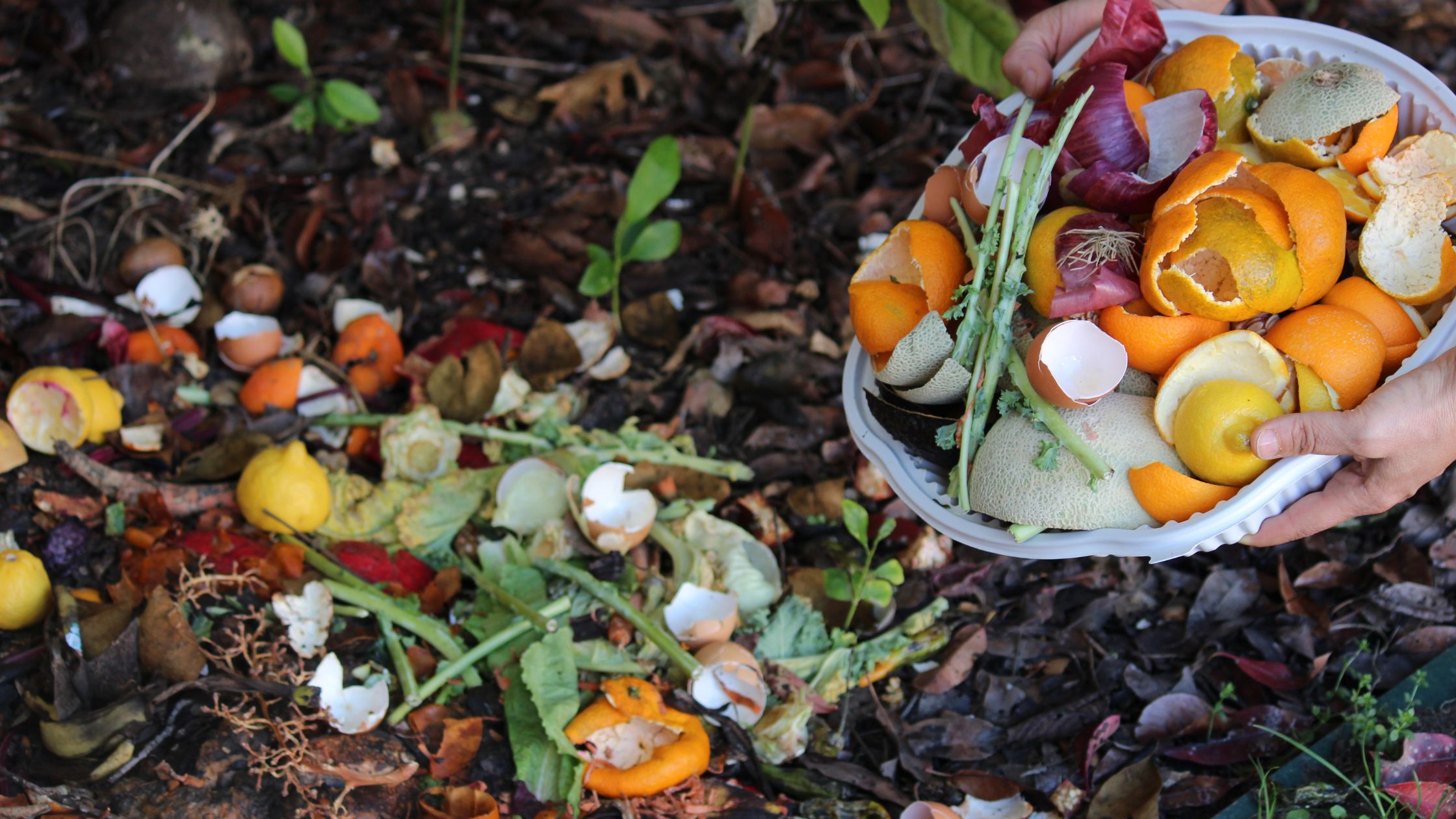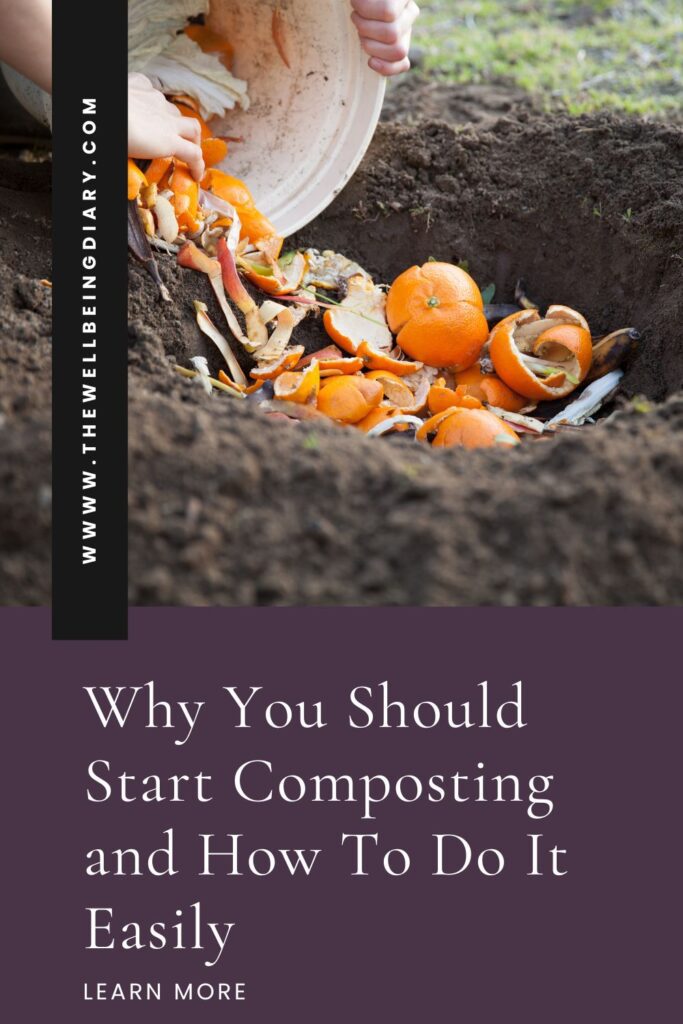Why You Should Start Composting and How to Do It Easily

Key Takeaways
How to Start Composting at Home
Composting is an easy way to reduce waste and improve soil health. Follow these steps to start:
- Choose a composting method (Backyard bin or indoor vermicomposting)
- Gather compostable materials (Greens: food scraps, coffee grounds; Browns: dry leaves, cardboard)
- Maintain balance (Aim for a 1:3 ratio of greens to browns)
- Turn the pile regularly (Ensures oxygen flow for faster decomposition)
- Use finished compost (Enhance garden beds, potted plants, or lawns)
By composting, you support sustainability, reduce food waste, and contribute to a greener planet. Start today!

In an era where sustainability is more important than ever, composting is a simple yet powerful way to reduce waste and nourish the environment. Whether you’re an experienced gardener or just starting out, learning the benefits of composting and how to start can help you embrace a more eco-friendly lifestyle while reducing your ecological footprint.
The Benefits of Composting
1. Reducing Food Waste and Supporting Sustainability
One of the biggest advantages of composting is food waste reduction. Instead of throwing away kitchen scraps, you can turn them into nutrient-rich compost that enhances soil health and supports sustainable agriculture. This practice contributes to a zero-waste lifestyle by repurposing organic matter rather than sending it to landfills.
2. Enhancing Soil Health for Organic Gardening
Healthy soil is essential for successful home gardening. Compost enriches the soil with essential nutrients, improves its structure, and promotes beneficial microorganisms. Whether you’re growing flowers, vegetables, or herbs, composting provides a natural and chemical-free way to maintain soil health.
3. Supporting Climate-Friendly Practices
By reducing reliance on chemical fertilizers and lowering methane emissions from organic waste in landfills, composting helps combat climate change. Choosing backyard composting over conventional waste disposal is an easy step toward a climate-friendly future.
4. Encouraging Green Living and Eco-Friendly Habits
Composting aligns with green living by promoting eco-friendly habits that benefit both people and the planet. It’s an excellent way to minimize waste, conserve resources, and contribute to a more sustainable lifestyle.
How to Start Composting Today
1. Choose Your Composting Method
There are several ways to compost, depending on your space and lifestyle:
- Backyard Composting: Use a compost bin or pile in your yard to decompose organic waste naturally.
- Indoor Composting: If you live in an apartment, try vermicomposting (using worms) or a small compost bin.
2. Collect Compostable Materials
Start by gathering compost-friendly materials, including:
- Greens (Nitrogen-Rich): Fruit and vegetable scraps, coffee grounds, and grass clippings.
- Browns (Carbon-Rich): Dry leaves, cardboard, shredded newspaper, and sawdust.
3. Maintain a Balanced Compost Pile
For effective composting, maintain a proper ratio of greens to browns (roughly 1:3). Turn the pile regularly to allow oxygen flow and speed up decomposition.
4. Be Patient and Use Your Compost Wisely
Composting takes time—typically a few months. Once ready, use the finished compost in your garden beds, potted plants, or lawn to enhance soil fertility.
Embrace the Power of Composting
Starting a composting habit is a rewarding step toward sustainability and home gardening success. Whether through backyard composting or small-scale indoor methods, making composting part of your routine contributes to green living, reduces food waste, and improves soil health naturally.
Start your composting journey today and make a positive impact on the environment!
FAQ
What are the benefits of composting?
Composting reduces food waste, enriches soil, lowers methane emissions, and promotes sustainable gardening by recycling organic materials into nutrient-rich compost.
How do I start composting at home?
Choose a composting method (backyard or indoor), collect compostable materials like fruit scraps and dry leaves, maintain a balanced pile, and turn it regularly for proper decomposition.
What materials can be composted?
Compostable items include fruit and vegetable scraps, coffee grounds, eggshells, dry leaves, cardboard, and shredded newspaper. Avoid meat, dairy, and oily foods.
How long does composting take?
Composting typically takes a few months, depending on factors like material balance, aeration, and moisture levels. Regularly turning the pile speeds up decomposition.
Can I compost in a small space?
Yes! Indoor composting methods like vermicomposting (using worms) or a small compost bin allow apartment dwellers to compost without a backyard.
What is the best ratio of greens to browns in composting?
A good compost pile should have a 1:3 ratio of greens (nitrogen-rich materials) to browns (carbon-rich materials) to ensure proper decomposition and prevent odors.
How do I prevent my compost from smelling bad?
Bad odors usually result from too much moisture or an imbalance of greens and browns. Add more dry materials (browns) like shredded newspaper or leaves, and turn the pile regularly for aeration.
Can I compost in the winter?
Yes! Composting continues in cold weather, though at a slower rate. Insulating the pile with straw or leaves and continuing to turn it will help maintain heat for decomposition.
How do I know when compost is ready to use?
Finished compost is dark, crumbly, and has an earthy smell. It should no longer have visible food scraps or an ammonia-like odor.
Can compost be used for all types of plants?
Yes! Compost is excellent for garden beds, potted plants, lawns, and even houseplants. Just be sure to mix it well into the soil for the best results.
What should I do if my compost pile is too wet?
Add more browns (dry leaves, cardboard, or straw) to absorb excess moisture. Turning the pile also helps improve airflow and prevent soggy conditions.
Can composting attract pests?
If done correctly, composting shouldn’t attract pests. Avoid adding meat, dairy, or oily foods, and keep your bin covered to discourage rodents and insects.
Do I need special equipment to start composting?
No! A simple compost bin or pile in your yard works fine. For indoor composting, a small bin with a tight-fitting lid or a worm composting system is ideal.
What’s the difference between compost and fertilizer?
Compost improves soil structure, retains moisture, and promotes beneficial microbes, while fertilizer provides specific nutrients to plants. Compost is a natural way to enrich soil over time.